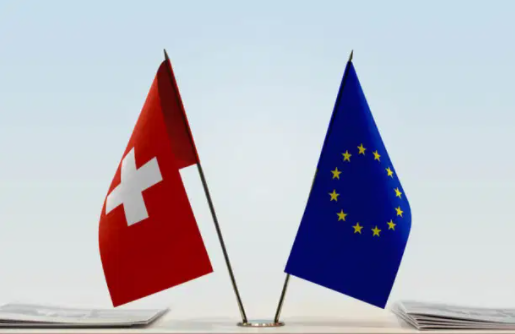Switzerland and the EU have been working at failing to agree on a new agreement on Switzerland’s relationship with the EU for sometime now. One point of negotiating leverage used by Switzerland is that Swiss voters would reject the deal proposed by the EU in a referendum. However, a recent poll suggests that might not be true.
A recent poll run by gfs.bern found that 64% of a sample of voters were either supportive (15%) or fairly supportive (49%) of the EU framework agreement proposed by Brussels. Only 32% of those polled said they were firmly (13%) or fairly (19%) against the proposed agreement.
The framework agreement is designed to put the five existing bilateral agreements between Switzerland and the EU into a single agreement. Fans of the plan argue that it will make the relationship more efficient and easier to manage. However, for others less enamoured with Switzerland’s close relationship with the EU it represents a controversial proposal that will tie Switzerland ever more closely to the bloc.
Switzerland’s existing patchwork of bilateral deals reflect the slow evolution of its relationship with the bloc beginning with the first deal in 1972. Key bilateral deals cover trade and free movement of people.
Switzerland’s relationship with the EU has rarely been straight forward. In 1992, a slim majority (50.3%) of Swiss voted to remain out of the EEA. After that the Swiss government shelved negotiations to join the EU. Since then the nation has drifted even further away from the idea of full EU membership.
According to the poll, the main arguments in favour of agreeing to the framework agreement were to maintain access to the EU export market (69%) and economic stability (68%). The main arguments against the deal were loss of the ability to protect Swiss wages (61%) and a belief that the Swiss government can negotiate a better deal (48%). Both of these arguments have gained in popularity since mid-2020.
According to the poll support for Switzerland joining the EEA is on the rise. 58% liked this idea, up from 45% in early 2019.
The recent poll was done by gfs.bern for Interpharma in April 2021. 2,005 people were interviewed across all of Switzerland’s linguistic regions.
Full story here Are you the author? Previous post See more for Next postTags: Featured,newsletter
































